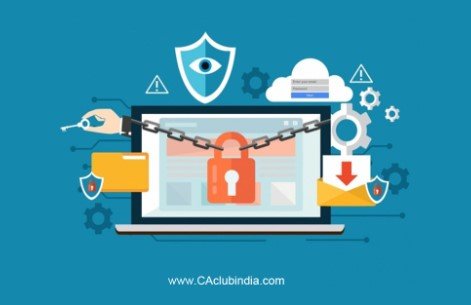In today’s digital landscape, where data breaches and privacy concerns loom large, compliance and data privacy is mission critical for businesses worldwide. To navigate this complex terrain effectively, organizations rely heavily on IT support.
We spoke with TechQuarters, a London-based IT support provider, about compliance, data privacy, and the role IT professionals. Like many IT support companies London businesses use, TechQuarters were instrumental in helping their clients navigate major compliance events – such as GDPR, Brexit, etc. We asked them about the key responsibilities, challenges, and best practices IT support teams employ to safeguard data integrity and regulatory adherence. Read on to see their insight…
Understanding Compliance and Data Privacy
Understanding compliance and data privacy is paramount for businesses operating in today’s data-driven world.
Compliance refers to adhering to internal policies that ensure proper governance and risk management, in accordance with industry regulations. These regulations aim to protect individuals’ personal information and impose strict obligations on organizations handling such data. Various types of data – including personally identifiable information (PII), financial data, and healthcare records – are subject to privacy regulations.
Non-compliance with these regulations can lead to severe consequences, including hefty fines, legal penalties, damaged reputation, and erosion of customer trust, highlighting the need for comprehensive IT support to navigate and uphold compliance and data privacy effectively.
The Vital Connection: IT Support and Compliance
IT support plays a crucial role in data security through a series of essential measures. We asked TechQuarters, as an IT support provider London companies rely on, about the types of measures taken in the realm of IT support to ensure compliance with regulations:
- Network Security – IT professionals fortify networks with robust firewalls, intrusion detection systems, and secure protocols to manage traffic in and out of the network.
- Data Encryption – Data protection mechanisms shield sensitive information from unauthorized access.
- Access Control – IT professionals can implement role-based access control and multi-factor authentication in order to restrict access to data to authorized personnel only.
- Monitoring – Continuous monitoring and auditing of systems and data handling practices enables IT professionals to swiftly engage in responding to and mitigating the potential damages of an incident.
- Updates and Patches – IT support teams diligently maintain and apply regular software updates and patches, bolstering system security and fostering a secure and compliant digital environment.
Key Challenges Faced by IT Support in Ensuring Compliance
IT professionals encounter frequent challenges in ensuring compliance. For example, the ever-changing landscape of regulations requires continuous efforts to keep up with evolving requirements.
Striking the balance between robust security measures and user convenience also presents a challenge. Furthermore, a persistent challenge for many IT support teams is resource and budget constraints, which has a knock-on effect on all areas of IT, including compliance and data privacy.
Read Also: 5 Best Korean Dramas
Best Practices for IT Support in Ensuring Compliance and Data Privacy
As compliance and data privacy remain paramount concerns for businesses, IT professionals must be well-versed in the best practices to effectively safeguard sensitive information. We asked TechQuarters, as a provider of IT support central London businesses have used for years, about some of the best practices for IT support functions in ensuring compliance:
- Proactive Approach to Security – This approach to IT support enables teams to anticipate and mitigate potential threats before they escalate.
- Employee Training and Awareness – Instilling a culture of data protection and compliance throughout the organization can be driven by training staff in security awareness.
- Data Mapping and Classification – A comprehensive understanding of data flow can aid in the identification of vulnerable areas across an organisation’s data infrastructure.
- Conducting Privacy Impact Assessments – This ensures that privacy risks are identified and addressed in advance.
- Management of Third-party Vendors – It is crucial to ensure that third-party vendors and partners comply with data protection regulations when handling sensitive data relevant to your business.
- Incident Response Planning – This allows IT support to swiftly and efficiently address security breaches and data incidents, minimizing potential damages and ensuring compliance.
By implementing these best practices, IT professionals can effectively reinforce compliance and data privacy measures, promoting a secure and trustworthy environment for businesses and their customers.

